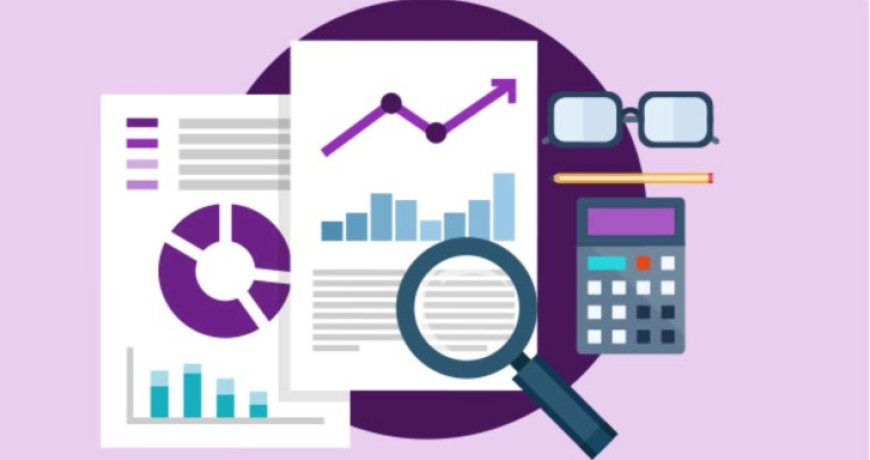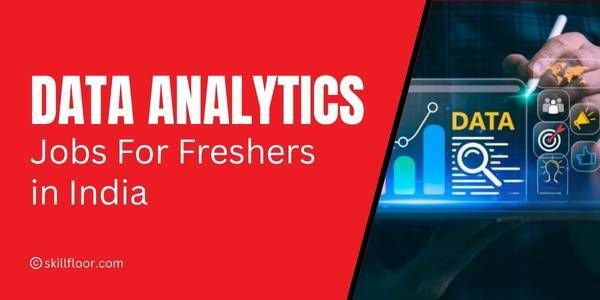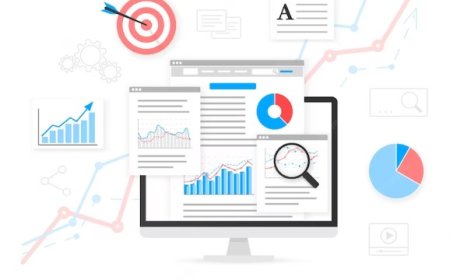How to Learn Data Analytics?
Learn how to master data analytics with our comprehensive guide. Explore key concepts, tools, and resources to kickstart your data analytics journey.

Data Analytics is a dynamic field at the heart of today's information-driven world. It involves the systematic exploration of data to uncover valuable insights and support decision-making. As we navigate the era of Big Data, the significance of data analytics cannot be overstated. This guide aims to provide you with a comprehensive roadmap on how to embark on a journey to learn data analytics. Whether you're a newcomer looking to start a career in this exciting domain or a professional seeking to enhance your skill set, understanding the fundamentals and learning the ropes of data analytics is a valuable pursuit.
Data Analytics
Data Analytics is the systematic process of examining, cleaning, transforming, and interpreting large volumes of data to uncover meaningful insights, patterns, and trends. It involves employing various statistical and computational techniques to extract valuable information from data sets, ultimately aiding in informed decision-making. Data Analytics encompasses a wide range of methodologies, from basic descriptive statistics to advanced predictive modeling, making it a crucial tool for businesses, researchers, and organizations across various industries to extract actionable knowledge from their data resources.
Why Learn Data Analytics?
Learning data analytics opens doors to a wide array of career opportunities in a job market that is constantly expanding. Data analysts are in high demand across industries, and this demand is projected to continue growing. Acquiring data analytics skills not only enhances your employability but also positions you for competitive and rewarding career prospects.
Data analysts are instrumental in shaping organizational decisions. They transform raw data into actionable insights, helping businesses make informed choices that drive efficiency and growth. By learning data analytics, you gain the ability to influence strategic decisions and contribute significantly to the success of your organization.
Data analytics is a versatile field with applications spanning numerous industries, from healthcare to finance, marketing, e-commerce, and more. Learning data analytics equips you with skills that can be applied across these diverse sectors, making it a valuable asset regardless of your chosen career path. The impact of data analytics on improving processes and outcomes in various domains underscores its importance in today's world.
Prerequisites and Skills
In the realm of learning Data Analytics, certain prerequisites and skills are fundamental for success.
Firstly, having a strong foundation in basic mathematics and statistics is crucial. This knowledge forms the backbone of data analysis, enabling you to understand and interpret data effectively.
Secondly, familiarity with programming languages like Python and R is essential. These tools are commonly used in data analytics for data manipulation, analysis, and visualization.
Thirdly, honing data visualization skills is important. Being able to present data insights clearly and effectively is vital for conveying your findings to others.
Lastly, cultivating critical thinking and problem-solving abilities is invaluable. Data analytics often involves tackling complex problems and making data-driven decisions, making these skills essential for success in the field. Developing these prerequisites and skills will lay a strong foundation for your journey into the world of data analytics.
Data Collection and Preprocessing
Data collection and preprocessing are foundational steps in the data analytics process. In this phase, you'll learn how to gather data from various sources, such as databases, APIs, or spreadsheets. Once collected, data often requires cleaning and preprocessing to ensure its quality and usability. This involves handling missing values, removing duplicates, and addressing outliers. Additionally, you'll gain skills in data transformation, including feature engineering, scaling, and encoding categorical variables. Mastering these techniques is crucial for working with real-world data effectively and obtaining accurate insights for analysis.
Exploratory Data Analysis (EDA)
Exploratory Data Analysis is a crucial phase in learning data analytics. In this stage, you delve deep into your dataset, aiming to understand its characteristics and uncover meaningful insights. It involves using descriptive statistics to summarize data, creating visualizations to reveal patterns, and identifying outliers or missing values. EDA serves as a foundation for making informed decisions on data preprocessing and selecting appropriate analytical techniques. Mastering EDA will sharpen your ability to extract valuable information from data, a fundamental skill in the data analytics journey.
Machine Learning Fundamentals
In this section, you will delve into the fundamentals of machine learning (ML). Machine learning is a critical component of data analytics, as it enables you to build predictive models and automate decision-making processes. You'll begin by gaining a solid understanding of ML concepts, such as supervised and unsupervised learning. This knowledge forms the foundation for developing predictive models based on data. Additionally, you'll learn how to evaluate and select the most appropriate machine learning models for different types of data and problems, ensuring that you can leverage the power of ML in your data analytics endeavors.
Learning Pathways
When embarking on the journey to learn Data Analytics, there are several viable pathways to choose from. One option is enrolling in online courses and tutorials, which offer flexibility and a wide range of resources to accommodate different learning styles. Another avenue is pursuing formal education through degrees and certifications, providing structured curricula and in-depth knowledge. For those who prefer self-directed learning, self-study using books and online resources can be highly effective. Additionally, Data Analytics bootcamps offer intensive, immersive programs designed to equip learners with practical skills in a shorter time frame. Each pathway presents unique advantages, allowing individuals to select the approach that aligns best with their learning preferences and goals.
Essential Tools and Technologies
In data analytics, several essential tools and technologies empower professionals to extract meaningful insights from vast datasets. These include powerful programming languages like Python and R, which facilitate data manipulation and statistical analysis. Data visualization tools such as Tableau and Power BI aid in presenting results effectively. Additionally, cloud platforms like AWS, Azure, and Google Cloud offer scalable computing resources, while machine learning libraries like TensorFlow and scikit-learn enable predictive modeling. SQL databases and NoSQL databases like MongoDB are pivotal for data storage and retrieval. These tools collectively form the foundation for effective data analytics practices.
Tips for Success
In the pursuit of learning data analytics, success hinges on a few key strategies. Firstly, setting clear learning goals is paramount. Define what you want to achieve and create a structured plan to reach those objectives.
Additionally, staying updated with industry trends is crucial. The field of data analytics is ever-evolving, and staying abreast of the latest tools, techniques, and best practices is essential to remain competitive.
Lastly, persistence and a commitment to continuous learning are vital. Embrace challenges, learn from your mistakes, and keep refining your skills. Data analytics is a journey, and with dedication, you can navigate its complexities and achieve proficiency.
Embarking on the journey of learning Data Analytics promises an exciting venture into a dynamic and ever-evolving field. The potential impact extends far beyond personal development, as proficiency in Data Analytics opens doors to diverse career opportunities and empowers decision-making across industries. With this in mind, I encourage you to take the first step towards acquiring this invaluable skill set. The world of Data Analytics awaits, offering a wealth of knowledge and boundless potential for growth and achievement.




























































